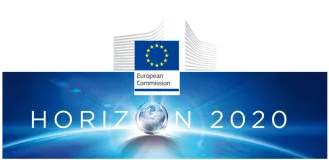FERTILIGENCIA
Relevant project information
Dates
Project website
Role of CIRCE
Grant agreement number
Funded by

Description and objectives
Plants and soil form a dynamic ecosystem. The soil is composed of a physicochemical structure, in which different organisms and microorganisms coexist and interact with each other, with the plant and with any type of agricultural input applied to the soil. Knowledge of the relationships established in a soil is essential to act on it at any level.
This project develops a new conception of agriculture, what we call "Fertiligence", which consists of the creation of innovative fertilizers that take into account not only the plant but also the entire ecological system of which it is a part. It is an intelligent fertilization based on knowledge of the ecosystem: soil - soil microbiology - plant.
The project aims to develop different innovative fertilizer products consisting of the addition of different excipients to conventional phosphorus and nitrogen fertilizers, increasing the efficiency of these elements. The sustainability of agricultural systems is favored thanks to the increase of the fertilizer efficiency of these macronutrients, by means of:
The project aims to develop different innovative fertilizer products consisting of the addition of different excipients to conventional phosphorus and nitrogen fertilizers, increasing the efficiency of these elements. The sustainability of agricultural systems is favored thanks to the increase in the fertilizer efficiency of these macronutrients, by means of:
- Decrease in the amount of fertilizers applied per hectare.
- Reduction of diffuse pollution caused by the application of fertilizers (emission of greenhouse gases, leaching and pollution of ground and surface water).
- Reduction of the carbon footprint generated in the manufacture of these innovative products, since, on the one hand, less fertilizer is required and, on the other hand, the raw material of the additive comes from industrial by-products.
Nowadays, many soils are in the process of degradation due to climate change and human action. The aim of this project is to increase the efficiency of the fertilizers applied to the soil, thus avoiding the loss of soil fertility due to the excessive and poorly managed application of fertilizers that is currently taking place.
Another fundamental role of soil in the fight against climate change is its capacity to capture CO2, through the accumulation of organic carbon. Taking into account that the project aims to reduce the ecological impact of fertilization and is aimed at optimizing resources, Fertinagro Biotech intends to develop all new fertilizer products based on the Circular Economy.
The excipients used will be produced mostly by microbiological fermentation using as raw materials, by-products discarded by other industries, such as glycerol from the biofuel industry.
Value proposition
- Development of new fertilizer products to reduce greenhouse gas emissions from the agricultural sector and improve soil fertility by optimizing nitrogen and phosphorus assimilation and the recovery of existing nutrients in soils through biostimulants.
- Evaluation of the effectiveness of the new fertilizer products developed on the growth and production of plant material in agronomic trials at different scales (laboratory, greenhouse and field).
- With the knowledge generated, design of an exergy-based methodology to guide the development of new innovative fertilizers.
- Based on the methodology, creation of a standard to evaluate in a simple but rigorous way the reduction of emissions and the sustainability of the agricultural process.
Project partners
FERTINAGRO, FUNDACIÓN AULADEI, CIRCE


